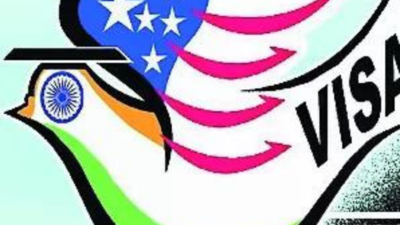- News
- World News
- US News
- Many miss H-1B lottery due to new norm in US firms
Trending
Many miss H-1B lottery due to new norm in US firms
A continuous churn in visa policies in the US has pushed many Indians to the edge. In a recent move, several American companies have made it mandatory for those on an Optional Practical Training (OPT) to work with them for at least a year before then can sponsor their H-1B. Result: Many freshly-minted Indian graduates with new jobs - hoping to participate in the H-1B visa lottery this March - are now forced to sit out of the process.
Incidentally, Indians comprise the largest group of H-1B visa applicants, making up nearly 72% of the lottery system's applications.
OPT holders said this policy shift aimed at filtering employees who can commit for a longer time in the company has added to their uncertainty. "I was hoping to file for the H-1B lottery this March. But now, my employer has made it clear that they will only sponsor employees who have completed one year with the company. I will have to wait until 2026 for my first attempt," said a Hyderabad-based techie who was hired in Nov 2024, after completing his master's in computer science.
OPT is usually issued to students on F-1 to work for one year post completion of their education.
The uncertainty is forcing many Indian students to make difficult choices - settle for lesser pay, junior profiles or just delay their plans of long-term work in the US.
"A friend of mine switched companies just to get the H-1B sponsorship, but his current job is a downgrade from what he was doing before. The pay is as much as 20% less compared to what the earlier company was offering," said Rohan Shah, studying data analytics in New Jersey. Shah is now stressed about his chances of finding a job with a company ready to sponsor his H-1B immediately. "What is the guarantee that they will sponsor after a year? And if they don't, where will we go? We will have to work odd jobs," he said.
Another student from Bengaluru, currently working in Texas as a programme manager, said the shift in policy has left many students feeling vulnerable. "It's almost like a trap - you work hard to get a job, but the very company that hires you now wants you to prove loyalty for a year before they'll sponsor your visa," he said.
End of Article
FOLLOW US ON SOCIAL MEDIA







